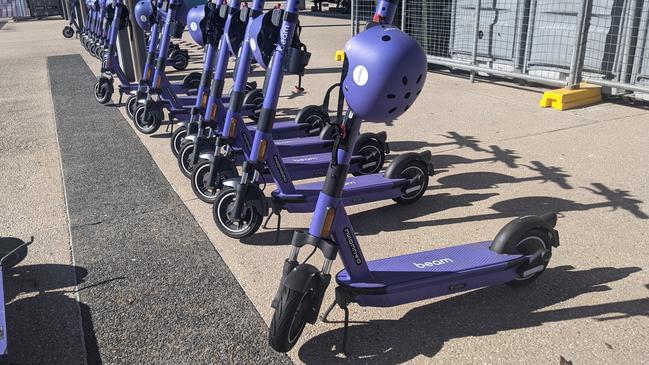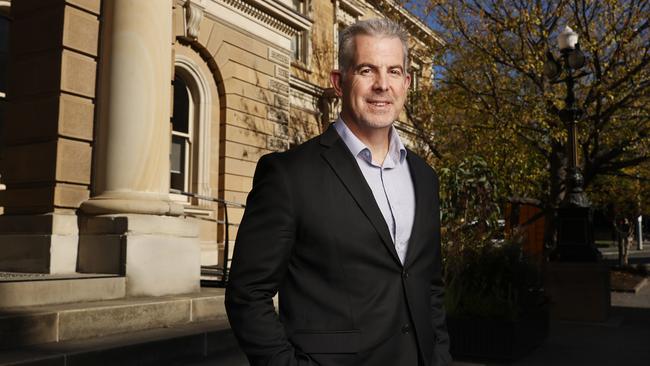Allegations against e-scooter company Beam Mobility prompt please explain from Hobart City Council
The company contracted to deliver hire e-scooter services in Hobart is embroiled in controversy, and the city council is asking it to explain itself.

Tasmania
Don't miss out on the headlines from Tasmania. Followed categories will be added to My News.
The Hobart City Council has issued a ‘please explain’ to the company delivering hire e-scooter services in the state capital after it was alleged to have secretly exceeded vehicle caps imposed by local governments in a number of regions across the country.
Beam Mobility, the largest micromobility company in the Asia-Pacific region, has been embroiled in a storm of controversy following a report in the Australian newspaper detailing an alleged scheme to provide fake data to an independent monitoring app, Ride Report, which is used to track vehicle and trip numbers.
The Singapore-based company has strongly rejected claims it embarked on a deliberate scheme to put ‘phantom’ scooters on the streets in Australia and New Zealand in a bid to drive up its profits while depriving local governments of revenue.

The Australian reported that at least five councils, including Brisbane and Auckland, were conducting investigations into Beam’s alleged conduct.
Auckland Council announced it had ordered Beam scooters out of the city on Tuesday, following its investigation, saying it had found the company had been deploying its e-scooters “in numbers well above the permitted limit in its licence and providing misleading data to conceal this from monitoring reports”.
E-scooter companies are generally required to pay registration fees on each vehicle and/or a percentage of the fare for each ride.
Beam is contracted by the Hobart City Council to deliver hire-and-ride e-scooter services. It also operates in Launceston.
Correspondence leaked to the Australian reportedly shows Beam President Deb Gangopadhyay emailed staff on April 17 last year to pitch a “risk-taking” project to increase the number of vehicles deployed in cities by “adjusting” data provided to Ride Report.
Hobart City Council CEO Michael Stretton said the council had contacted Beam and Ride Report after it became aware of the allegations.
“Beam has been the City of Hobart’s sole operator since May, and our investigations have not identified any anomalies,” he said.
Beam’s contract with the council sets out a minimum and maximum number of vehicles it is allowed to have on the streets each day.
“We will continue to monitor hire-and-ride operations closely to ensure community safety and compliance with all commercial obligations,” Mr Stretton said.

Beam CEO Alan Jiang told the Mercury the company had “apologised and intend to take steps to remedy” any cap breaches it had committed.
“Beam Mobility has confirmed it undertook a program to optimise the number of operational (usable or accessible) vehicles available to the public in some jurisdictions,” he said.
“As a result of this approach, we are aware there have been instances where we have exceeded the vehicle allocation.”
The company will conduct an internal review and is set to appoint an independent auditor to determine the scale of “noncompliance issues”.
Beam is “prepared” to negotiate commercial settlements with councils that may have been affected by the issues, Mr Jiang said.
City of Launceston CEO Sam Johnson said Beam operated there under a permit specifying operational areas rather than a maximum number of scooters. He said no “discrepancies” had been identified in the Northern city.
Beam announced in April that its profits had soared by 36 per cent to a record $53m USD in 2023.





